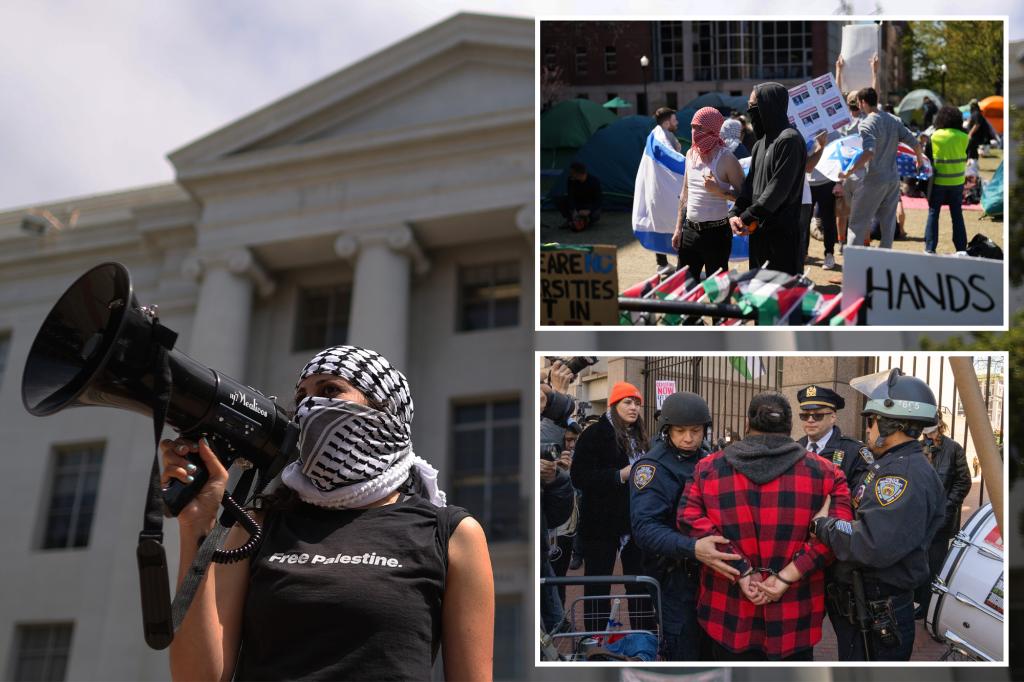Campus protesters across the nation are being influenced by their experiences during the pandemic. Many of these young individuals grew up feeling isolated and angry due to school closures and social distancing measures, driving them to seek connection, community, and a voice. The pro-Palestinian cause has allowed these discontented youths to express their long-withheld rage, providing them with an opportunity to identify with the oppressed against the oppressors, according to forensic psychiatrist Carole Lieberman.
These young protesters are susceptible to propaganda, as they are searching for direction and purpose in a confusing world. Lieberman noted that individuals promoting ideologies that promise happiness and purpose have found a receptive audience among these youth. Recent protests and encampments in solidarity with Palestinians have been reported at various colleges, with Jewish students feeling harassed and unsafe due to chants advocating for the freedom of Palestine.
Many of the young demonstrators do not fully understand the movement they are aligning themselves with. Lieberman pointed out that a lack of knowledge about the intention of global jihad and the repercussions of using certain phrases in chants can contribute to their ignorance. Examples of this ignorance were observed at anti-Israel rallies, such as Columbia students admitting they were not well-informed about the protest they were participating in.
The impact of the pandemic on these protesters is evident with the continued use of masks at demonstrations, despite most of the country moving on from Covid-19 precautions. Masks are being utilized as both a symbol of fear of the virus and a means to shield identities. By wearing masks, protesters are signaling their dissent with the Biden administration’s narrative on Covid-19 and connecting this neglect to the issues they are protesting for, according to March on DNC 2024 coalition spokesman Olan Mijana.
The communal aspect of these demonstrations provides comfort and a sense of connection for individuals who have been denied socialization during critical stages of their lives. Psychologist Jennifer Gittleman highlighted how protesters may be using these events as a way to release their anger over the pandemic disrupting significant experiences like socialization in college and missing graduations. The protests serve as a platform for these individuals to come together, find support, and express their frustrations and grievances.
In conclusion, the impact of the pandemic on a generation of young protesters is evident in their desire for connection, community, and purpose. The pro-Palestinian cause has provided an outlet for their frustrations and allowed them to identify with a movement that resonates with their feelings of anger and isolation. However, their susceptibility to propaganda and lack of understanding about the implications of their actions highlight the need for education and awareness among these demonstrators. The continued use of masks at protests reflects lingering fears and dissatisfaction with the response to Covid-19, while also serving as a means to shield identities. The communal aspect of these events offers solace and a sense of belonging to individuals who have been impacted by the pandemic’s disruption of their socialization and life experiences.













